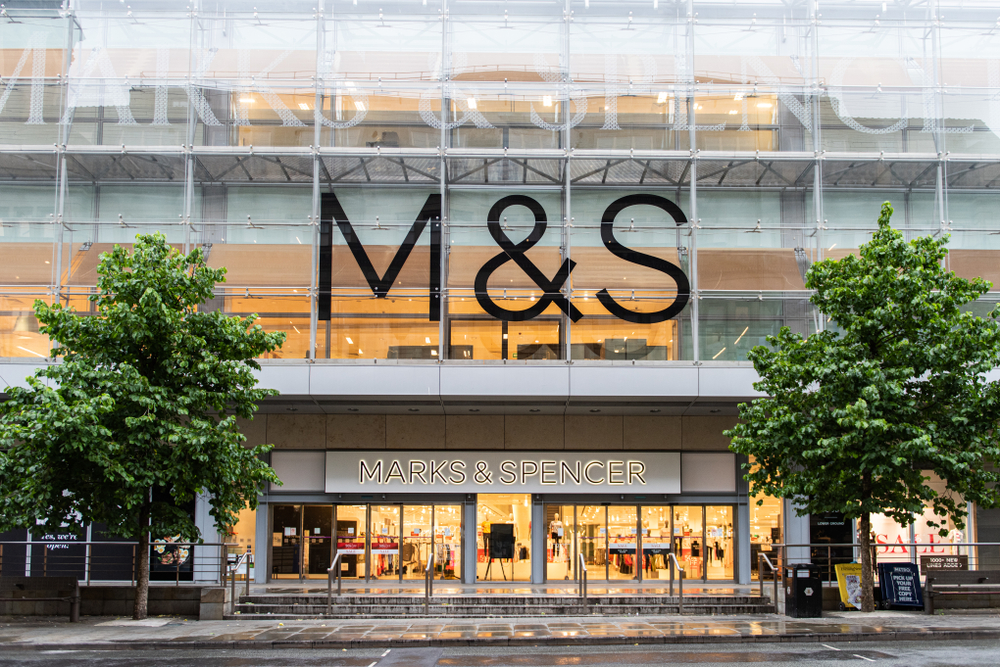Despite growing scepticism about Black Friday and as consumers worry about the shortage effects across retail this festive period, 90% of UK consumers are planning on start their Christmas shopping early as they move almost exclusively online for their early foray in festive shopping.
Research by Appinio, a global research platform that collects some 1 million answers daily from its panels, quizzed 1000 UK shoppers last week and found that the majority (56%) plan on buying all their Christmas gifts on Black Friday this year. It’s also, therefore, no surprise that a third (30%) also admit to having already started their Christmas shopping despite the big day still being 11 weeks away. Around 1 in 2 (54%) are planning to buy gifts both in store and online.
Or are they? According to a poll by intralogistics company Dematic, while many people are planning early Christmas purchases in response to warnings of supply chain delays, 76% of online shoppers are not planning to take advantage of this year’s ‘Black Friday’ event.
Despite being billed as one of the biggest shopping dates in the diary, the majority of UK and Irish consumers say they will not be tempted by the promise of ‘unbeatable deals’ on November 26. This is likely the result of a difficult year as many people have been forced to count the cost of living through the COVID-19 pandemic.
Concerns raised by shoppers who responded to the poll included money troubles, the validity of the bargains when compared to historical pricing, and the excessive consumerism represented by the event.
However, the poll revealed that there are still bargain hunters to be found in the run up to the festive season which will be a relief to retailers. More than one in six respondents (16%) admitted that they were planning to shop online during Black Friday and spend even more than last year. A further 7% said they would be taking part but would be taking a more cautious approach by spending less than 2020.
Steffen Thierfelder, Managing Director of Northern Europe, Dematic, remains confident: “It is clear from the survey that people are more wary about spending during the Black Friday event this year. This may be in response to the tough year that many have experienced in the wake of the pandemic.However, Black Friday will still place enormous demands on retailers to service those consumers who are planning to shop for a bargain.”
How are they going to spend?
Consumer spending is set to be a slow burn, according to McKinsey & Company’s 2021 European Consumer Sentiment Survey. Only 33% of UK consumers plan on splurging before the end of the year, down from 47% in February 2021. UK consumers are slightly more optimistic about an economic recovery (33%) than they were in February 2021, (30%).
However, optimism in the UK is lower than the US (44%), China (67%) and India (74%).
In terms of spending, 68% are planning to spend the same amount as last year on Christmas gifts with only 1 in 10 (10%) planning on spending more, finds Adjust. The average spend will be around £283 in total, with the research showing that men will spend £11 more than women and Generation Z will spend the least, at £209. Those aged between 35-44 will spend the most, with an average coming out at £302.
This is to be expected, says Tanya Weller, Marketing Director, Direct-To-Consumer, Samsung Electronics. “This Black Friday sees purchasing habits that have evolved over the past two years really coming to life. As we adjust to the ‘next normal’, we are now seeing the rise of the online/offline shopping experience, with shoppers wanting the best of both worlds.”
She continues: “Black Friday normally marks the start of the Christmas purchasing period, however this year we are seeing shoppers snapping up festive gifts earlier than ever – with UK shoppers saying they have picked up 70% of their presents already. Whilst online sales continue to be popular, we are seeing a surge this year in click-and-collect through Samsung KX. Customers want the convenience of researching products and purchasing through online retailers, while retaining control of when they get their products in their hand, in person. “
According to McKinsey, Gen Z intend to splurge on visiting restaurants, bars and dining out (45%), followed by apparel, shoes, and accessories (45%); Baby Boomers plan to splurge on travel, lodging, and holidays (43%); Gen X intend to splurge on visiting restaurants, bars and dining out (39%), followed by travel, lodging, and holidays (37%); Millennials are most like to splurge on items for their home (32%) and household essentials (30%).
Shopping influences
Despite brands ploughing huge spending behind Christmas television advertising each year, the research showed that almost half (42%) cite the biggest inspiration for Christmas shopping as recommendations from family and friends. This was followed by a third influenced most by in-store displays (34%) and then television at (32%).
However, with the pandemic accelerating the rise in brands putting money behind digital advertising, the data showed that Gen Z (38%) and 35-44 year-olds (36%) are more likely to find inspiration through online ads and Millennials are more likely to get inspired by social media posts.
Jacqueline Junke, Market Lead UK at Appinio, comments: “With the world in a largely different place to Christmas 2020, it was important for us to look at how sentiment in UK consumers towards Christmas shopping and festivities. We are now able to offer insights into how people plan to behave this year. With the growing concern over shortages that has hit retail across the board, it wasn’t surprising to see this reflected in our data, with people planning on doing Christmas shopping earlier and with a strong online focus. It’s therefore important for retailers to understand that targeting shoppers earlier with both in-store and online promotions will likely see better uptake than promotions nearing the big day. We have also found detail on the amount people plan to spend and that buying for the male sex proves harder than for female – which could offer an opportunity for retailers to target this market more effectively.”
This is backed up by the McKinsey research, which finds that 56% of holiday purchases are expected to be influenced by social media; 84% of Gen Z and 73% of Millennials expect to be influenced by social media. This compares with 38% of Gen X and only 10% of Baby Boomers. Gen Z are looking to TikTok (67%), Twitter (54%) and Instagram (46%) for holiday inspiration.
The top 3 categories where social media influenced Gen Z to purchase are: skincare and make-up (58%), accessories (58%) and toys and baby supplies (53%). The top 3 categories where social media influenced Millennials to purchase are: jewellery (53%), sports and outdoor equipment (51%) and skincare and make-up (51%).
Eric Hazan, Senior Partner, McKinsey & Company comments: “Spend not splurge is this year’s holiday sentiment. Retailers will need to navigate product shortages to obtain their share of wallet, as consumers rarely wait for stock availability. Value is also a deciding factor, as consumers cite this as the main reason behind brand switching. The opportunity for retailers sits largely with social media, where holiday purchases can be influenced.”
Is retailer investment in Black Friday waning?
With all this confusion around how shoppers see Black Friday and how they may – or may not – shop across the big weekend, retailers are also warning that investment in Black Friday may not be the best way to grow their businesses.
Metrics taken from Conjura’s Black Friday benchmarking study, which analysed data from businesses across multiple categories between 2018 and 2020, suggests that return on investment for eCommerce businesses over Black Friday week has been dropping for the past three years.
Most notably, the study found that customer acquisition costs (CAC) for Black Friday week are 13% higher relative to other times of the year as calculated on paid digital media (paid search and paid social marketing).
It also finds that the six-month lifetime value (LTV) of customers acquired during this period is 9% lower than the average for the rest of the year, while repurchase rates for those acquired during Black Friday are also consistently 5% worse, depending on category.
Average return on ad spend (ROAS) has decreased over the past three years. Falling from 46.1% higher during Black Friday versus other times of the year in 2019 to 28.7% last year.
Fran Quilty, CEO of Conjura, says: “I don’t want to suggest that eCommerce businesses should avoid Black Friday week, it still accounts for almost a tenth of annual revenues across categories and revenue peaks are three to four times higher than on the average day.”
Quilty adds: “It remains an important annual event for driving customer acquisition, however what’s important is attracting the right customers. Businesses should look at the data beyond the short-term revenue spikes to understand if Black Friday really is the best option for them. For instance, it is better suited to businesses selling big ticket items, such as furniture, or those structured around repeat purchases, rather than for FMCG brands.”









